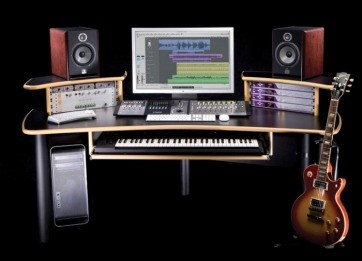Learning through Art: Technology, Music and Drama
Preparation:
Course organisers will send to the participants list of materials related to the course topic they can read in order to prepare for the course. Organisers will assist the participants if they need information related to the accommodation, flight tickets or any detail necessary in organising the course.
Course description
This course integrates components of e-learning, drama activities in the classroom and learning through music. Process of learning is complex, and always should include multiple approaches. We will combine seemingly unrelatable: drama, music and technology. Music is a part of child care curriculum; not only that children learn cause and effect when playing the instruments, they also practice fine-motor coordination and learn about emotions. Drama activities enable children to practice empathy and to develop interpersonal and intrapersonal skills. And finally, technology in inevitable fact in every classroom of today – digital classroom can be the vehicle for any art. This course will provide the participants to engage in activities which unite digital classroom, drama and music. It will give the participants useful idea on how to put interesting activities in practice.
Methodology:
The methodological approach implicates:- Ice – Breaking and Warm – Up Sessions
- Energisers
- Role – Playing
- Music Activities
- E – Learning Platforms
- Team – Building Sessions
- Group Discussions
- Debates
- Creation of individual learning pathway for the learners;
- Problem – Solving Activities
- Project – Solving Activities
- Questioning
- Goal – Setting sessions
- Decision – Making Sessions
- Action – Based Strategies
- Brainstorming
- Star bursting
- Planning an Structuring
- Negotiation and Persuasion
- Self – Motivation Sessions
- Questionnaires
Objectives
- Enhancing the awareness of multiple intelligence in the classroom;
- Developing tools and techniques for learning through art;
- Learning about the link between music, drama and technology;
- Encouraging students to question the process of learning;
- Developing listening skills by learning through music;
- Exchanging experiences and cross cultural practices in creativity and innovation through technology and art.
- Getting practical ideas for applying in classroom in the areas of drama, technology and musical education
- Learning how to draw students' attention through learner – based approach
- Making your lessons more engaging through role – playing and other drama activities
- Learning how to use educational platforms available online in the classroom
- Learning about e – learning
- Improved creative thinking skills of both teachers and their students
- Development of tools and techniques for innovative problem solving
- Learning how to approach the student considering multiple intelligence theory
- Improvement of language and communication skills
- Increased capacity to cooperate on international level
- Enhancing intercultural awareness
- Internationalisation and modernisation of your approach
Follow-up
Trainees will be given soft and hard copies of all lesson materials, which they presenting to their colleagues at their own organizations to generate interest in 21st-century teaching methods with creative thinking. In addition, a mailing list of participants will be created in order to exchange ideas/experiences. Self-evaluation materials will be provided. At the end of the course the participants will accomplish a questionnaire in order to get a detailed feedback for the effectiveness of the training event.
Programme of training activities day-by-day:
Day 1 – MONDAY
- Welcome and registration
- Introduction to the concept of learning through art and technology
- Practical activities to enhance the thinking skills through art activities
- What are the characteristics of 21st century educator ; project – based learning
Day 2 – TUESDAY
- Multiple intelligence theory – each student is different
- Including the concept of multiple intelligence in active teaching
- How to implement E-learning in classroom in different subjects
- Introduction to Moodle;
- Creating a lesson in Moodle
- Advantages and Disadvantages of Digital Classroom
Day 3 – WENDESDAY
- Learning through music: the support of brain research
- How music helps to develop listening skills
- Enhancing the memory with learning with music
- Music and drama: practical activities
Day 4 – THURSDAY
- Ice – breaking activities
- Google in classroom – how to use it
- How to make digital environment in school
- Google vs. Teacher – critical debate
Day 5 – FRIDAY
- Creativity through drama activities
- Technology and drama: practical activities
- Bloom's taxonomy – innovation is the future of education
Days 6/7 – SATURDAY and SUNDAY Workshops and Cultural/Sightseeing Activities
Day 8 – Monday
- Benefits of using drama activities in the classroom
- Enhancing learning experience through drama and music
- Digital classroom – inevitable fact in education
- Art and technology – learning by doing
Day 9 – Tuesday
- Technology as a vehicle for learning;
- Useful educational programmes online: Kahoot, Quizizz and other programmes
- Quizzes, exams and tests online
Day 10 – Wednesday
- Workshop: Digital learning in my subject
- Feedback, Course Evaluation and Dissemination Focus





